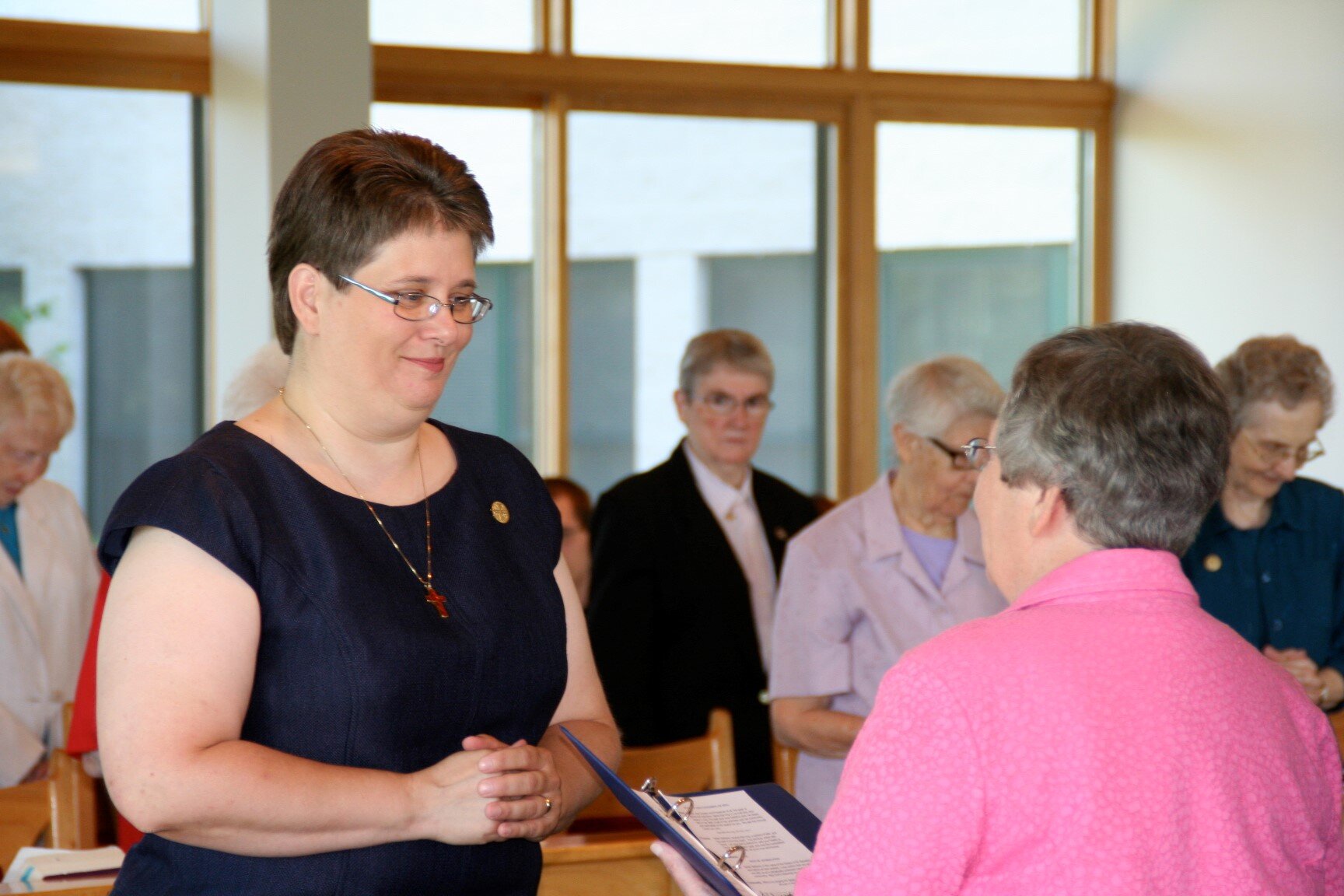
Become a Benedictine Sister
Where do I begin?
Initial Contact
We invite you to contact our Vocation Director, Sister Stefanie MacDonald at smacdonald@smmsisters.org or (309) 283-2300. After your initial conversation, we suggest that you visit the monastery for an evening or weekend to learn more about our life in community. You will be our guest: there is no charge for an overnight visit.
Inquiry
If you wish to learn more about us, you may enter the Inquiry stage, a period of mutual discernment between you and the Sisters of St. Benedict that typically takes one to two years. You will be introduced to the Benedictine monastic way of life and to our monastic community. You will get to know us, and we, you.
During the Inquiry stage, you will be encouraged to:
Keep in contact with the Vocation Director
Attend days of prayer and retreats at the monastery
Read and discuss suggested materials with the Vocation Director
Visit the monastery and spend time with the community
Application
Once your readiness to begin the formal application process has been mutually decided, you make a formal request to the Prioress to enter into a more serious discernment with the Sisters. Each applicant is considered on an individual basis and with respectful attention to her personal history, talents and needs. But the main question is: Are we right for each other?
Age: Generally we discern seriously with single women who are practicing Catholics between the ages of 21 to 48.
Education: You are expected to have had some college and/or work experience.
Financial Situation: You are asked to be free of major debts with the exception of educational loans.
Catholic Identity: You need to have been a practicing Catholic for at least two years.
Marital Status: You must be single. A period of three to five years following the death of a spouse or divorce must precede request for application. An annulment is required, in the case of a divorce, before application can proceed.
Health: You must have sufficient physical and psychological health to live in community and be involved in service to others. A physical exam and medical history are required, as well as psychological testing by a
community-approved psychologist.
What Steps Lead to Final Vows?
Postulancy
Once your application is accepted, a date for your entrance into the community as a Postulant is set. During your Postulancy (nine to 12 months), you will deepen your understanding of Benedictine community life, prayer life and your own commitment level. The Postulancy time is another period of mutual discernment between you and community members.
Novitiate
At the end of your Postulancy, we discern together your readiness to continue before you are received as a Novice. During this two-year program, you will continue Benedictine and theology studies. You will also further your study of our monastic profession of obedience, stability and fidelity to the monastic way of life.
First Monastic Profession
First Monastic Profession follows the Novitiate stage. This three- to six-year period is a time of growth and immersion into the Benedictine way of life as a Sister, during which you will participate in ministry and be guided to deepen your spirituality and integration into the community.
Perpetual Monastic Profession
Perpetual Monastic Profession embraces our permanent commitment to obedience, stability and fidelity to the monastic way of life.
Obedience is our promise to be faithful listeners. We listen to the voice of the Spirit in Scriptures, in the Rule of Benedict, in the Prioress, and in one another. We are guided by the question of what is truly best for ourselves, and for the community. Then, we seek to respond with generosity and courage.
Stability is our promise to live the Benedictine life together in celibacy and monastic poverty. Rooted and strengthened by our lives in this community, celibacy enables us to devote our time and energy as Christ, in the service of others. Celibacy allows us to share ourselves fully with the world. Monastic poverty asks that we live simply, balancing our wants and needs.
Fidelity to the Monastic Way of Life is our promise to work through life—and life's changes—with God at the center of our lives. We seek to be faithful to this way of life ... and this life transforms us when we are faithful to it. It transforms us so that we turn to God in the midst of everything that happens in our lives—in joy, in pain, in everyday events. It transforms us during communal and private prayer, so that we can deal with the everyday details of life.

